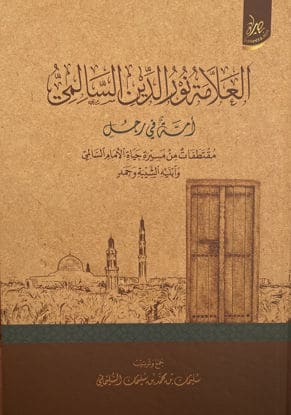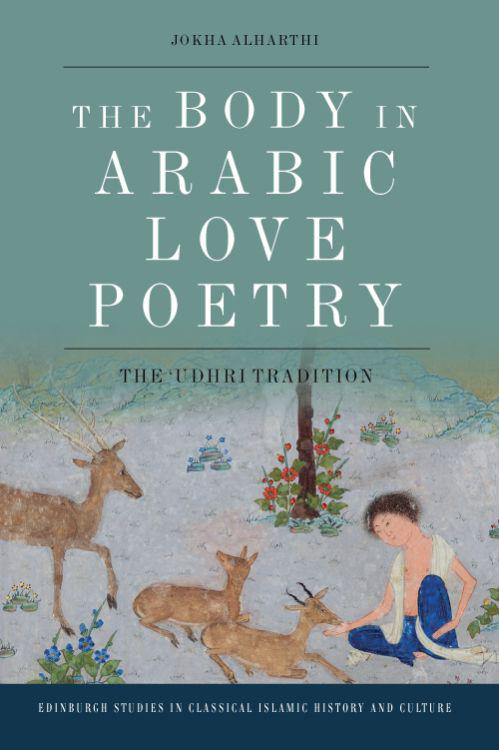Omani literature is a rich and diverse tradition that has evolved over the centuries. The country’s history and geography have played a significant role in shaping its literary heritage. Oman’s strategic location at the crossroads of the Indian Ocean and the Arabian Gulf has made it a melting pot of cultures and ideas, which is reflected in its literature.
The earliest form of Omani literature was oral storytelling, which dates back to pre-Islamic times. Storytelling was an essential part of Omani culture, and tales were passed down from generation to generation. These stories were often based on real events or historical figures and were used to entertain, educate, and preserve the country’s cultural heritage. With the arrival of Islam in the 7th century, storytelling evolved to include religious tales and moral lessons.
Over time, Omani literature expanded to include various forms of poetry, including classical Arabic poetry, which was heavily influenced by the Islamic Golden Age. Arabic poetry is still an essential part of Omani culture, and many poets continue to produce works that explore themes such as love, nature, and spirituality. In recent years, Omani literature has also embraced modern forms of expression, such as novels, short stories, and plays, which have brought new perspectives and voices to the country’s literary scene.
Overview of the Various Forms of Omani Literature
Omani literature is a rich and diverse field, with a long history of storytelling and expression. It encompasses a wide range of genres and styles, from poetry and folktales to modern fiction and drama. In this section, we will provide an overview of the various forms of Omani literature.
Poetry
Poetry has a long and rich tradition in Oman, with a history that dates back several centuries. Omani poetry is characterized by its use of classical Arabic forms, such as the ghazal and the qasida, as well as its unique regional styles and themes. Many Omani poets have explored themes of love, nature, and spirituality, as well as social and political issues.
Folktales
Folktales are an important part of Omani culture, and have been passed down through generations for centuries. These stories are often told in the form of oral narratives, and are characterized by their vivid imagery, rich symbolism, and moral lessons. Many Omani folktales feature supernatural beings, such as jinn and ghuls, as well as heroes and heroines who overcome great obstacles.
Modern Fiction
In recent years, Omani literature has seen a surge in modern fiction, with writers exploring a wide range of themes and styles. Many Omani writers have focused on issues of identity, globalization, and social change, while others have explored more personal themes, such as family and relationships. Omani fiction is characterized by its use of both classical Arabic and vernacular dialects, as well as its unique regional perspectives.
Overall, Omani literature is a vibrant and dynamic field, with a rich history and diverse range of genres and styles. Whether exploring the themes of love, nature, and spirituality in poetry, or delving into the rich traditions of folktales, or exploring contemporary issues in modern fiction, Omani writers have made significant contributions to the literary world.
Discussion of the Role of Storytelling and Oral Tradition in Omani Culture
Professional Storytellers
In Omani culture, storytelling has been a significant part of their oral tradition for centuries. The role of professional storytellers, also known as Hakawati, has been crucial in preserving and passing on Omani folklore. These storytellers were highly respected members of society, and their performances were often held in public spaces like marketplaces, mosques, and homes.
Professional storytellers were skilled in various storytelling techniques, including singing, reciting poetry, and narrating stories. They were considered the keepers of Omani history and culture, and their performances were not only for entertainment but also for educating their audience. The stories they told were often based on real-life events, and they were passed down from generation to generation, keeping the Omani culture alive.
Preservation of Omani Folklore
The preservation of Omani folklore is essential to the Omani people as it is a way of keeping their culture alive. The oral tradition of storytelling has played a significant role in the preservation of Omani folklore. With the help of professional storytellers, these stories have been passed down from generation to generation, keeping the Omani culture alive.
The Omani government has also played a crucial role in preserving Omani folklore. They have established institutions like the Omani Centre for Traditional Music and the National Records and Archives Authority, which are responsible for preserving and documenting Omani culture and history. These institutions have collected and preserved a vast amount of information about Omani folklore, including stories, songs, and poems.
In addition, the Omani government has recognized the importance of Omani folklore and has taken steps to promote it. They have organized various events and festivals, including the Muscat Festival, which showcases Omani culture, including storytelling performances by professional storytellers.
In conclusion, storytelling and oral tradition have played a significant role in Omani culture, preserving and passing on Omani folklore from generation to generation. The role of professional storytellers and the efforts of the Omani government in preserving and promoting Omani folklore have ensured that the Omani culture remains alive and thriving.
Description of Key Omani Literary Figures
Nur al-Din al-Salimi
Al-Sālimī is a scholar , investigator, poet and Omani historian, is one of the most prominent sheikhs of Oman in the nineteenth century AD, born in the village of Hawqin in Rustaq and nicknamed Abu Shaybah and nicknamed Noor al-Din, one of his most famous books is the book of indoctrination of boys in the science of jurisprudence, and the book of the masterpiece of notables in the biography of the people of Oman in the science of history.

Jokha Alharthi
Jokha Alharthi is an award-winning Omani novelist and academic. Born in 1978 in the city of Muscat, she is the author of several acclaimed works of fiction, including “Celestial Bodies”, which won the 2019 Man Booker International Prize.
Alharthi’s writing often explores themes of identity, and social change in contemporary Oman. Her work is known for its lyrical prose and its ability to capture the nuances of Omani culture and society. In addition to her writing, Alharthi is a professor of Arabic literature at Sultan Qaboos University in Muscat.

Examination of the Themes and Motifs Found in Omani Literature
Exploration of Identity
Omani literature often explores themes of identity, particularly in relation to the country’s rich history and cultural heritage. Many works of literature examine the ways in which Omani identity has been shaped by various factors, including religion, geography, and political history. For example, some Omani authors have explored the role of Islam in shaping Omani identity, while others have focused on the country’s unique geography and the ways in which it has influenced Omani culture.
History
History is another prominent theme in Omani literature. Many works of literature explore Oman’s rich history, including its pre-Islamic past, the rise of Islam in the region, and the country’s role in the Indian Ocean trade network. Some works of literature also examine the ways in which Omani history has been shaped by colonialism and imperialism, particularly during the period of British rule in the 19th and early 20th centuries.
Social Issues
Finally, Omani literature also often addresses a range of social issues, including gender, class, and politics. Many works of literature explore the experiences of women in Oman, as well as the ways in which social class has shaped Omani society. Additionally, some works of literature address contemporary political issues, including the role of the state and the ongoing struggle for political reform in the country.
Overall, Omani literature offers a rich and complex exploration of the country’s history, culture, and society. Through its exploration of identity, history, and social issues, Omani literature offers readers a nuanced and multifaceted view of this fascinating and complex country.
Analysis of the Challenges and Opportunities Facing Omani Writers and Publishers
Modernization
Oman’s modernization efforts have created both challenges and opportunities for writers and publishers. On the one hand, modernization has led to increased literacy rates and access to technology, which has made it easier for writers to reach wider audiences. On the other hand, modernization has also led to a shift away from traditional forms of storytelling and expression, which has made it difficult for writers to preserve and promote Oman’s cultural heritage.
In addition, modernization has led to the emergence of new forms of media and entertainment, which has created competition for writers and publishers. For example, social media platforms and streaming services have made it easier for people to access a wide range of content, which has made it more easier for writers and publishers to capture people’s attention.
Globalization
Omani writers and publishers face a range of challenges and opportunities as they navigate modernization and globalization. While modernization has created new opportunities for writers to reach wider audiences, it has also led to a shift away from traditional forms of storytelling and expression. Similarly, while globalization has created opportunities for collaboration and new audiences, it has also led to the dominance of Western literature and culture.
Conclusion: The Enduring Importance of Omani Literature and Its Role in Shaping the Cultural Identity of Oman
Omani literature has played a significant role in shaping the cultural identity of Oman. It has been an important medium of storytelling and expression for centuries, providing a window into the country’s rich history, traditions, and values. Through its literature, Oman has been able to preserve its unique identity and promote its cultural heritage to the world.
One of the enduring qualities of Omani literature is its ability to capture the essence of Omani culture and way of life. Whether it is through poetry, prose, or oral storytelling, Omani literature is deeply rooted in the country’s history, traditions, and customs. It reflects the values of hospitality, generosity, and respect for others that are so important to Omani society.
Another important aspect of Omani literature is its role in promoting cross-cultural understanding and appreciation. Through its literature, Oman has been able to share its rich cultural heritage with the world, fostering greater understanding and appreciation of its unique identity and traditions.
Overall, Omani literature remains an important part of the country’s cultural identity and heritage. It serves as a testament to the enduring qualities of Omani culture and way of life, and as a bridge between Oman and the rest of the world. As Oman continues to evolve and grow, its literature will remain an important means of storytelling and expression, providing a window into the country’s rich history and traditions for generations to come.
